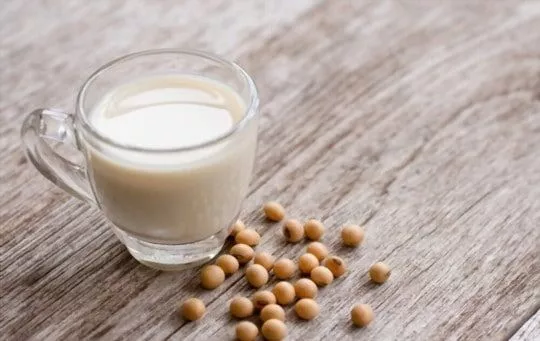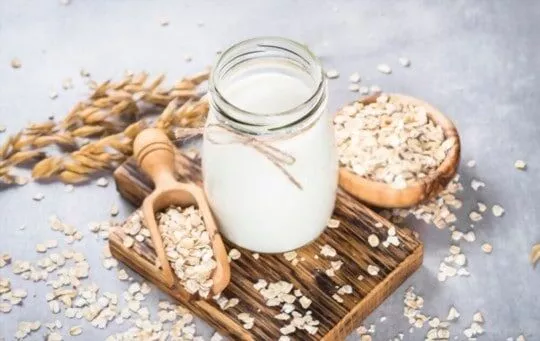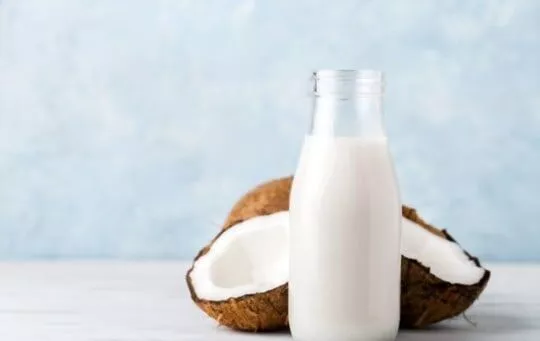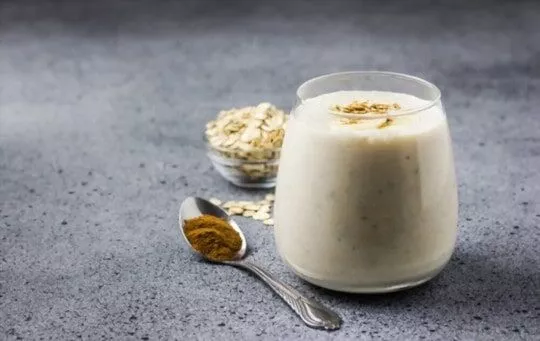Rice milk is a popular non-dairy milk alternative, known for its light, sweet taste, and thin consistency.
It’s a favorite among vegans, lactose-intolerant individuals, and those who simply prefer a plant-based milk option.
But what if you’re out of rice milk or looking for an alternative with a different taste or nutritional profile?
What are the best substitutes for rice milk? The best substitutes for rice milk include almond milk, soy milk, oat milk, coconut milk, cashew milk, hemp milk, and various other plant-based milk alternatives that cater to different tastes, textures, and dietary needs.
Whether you’re out of rice milk or just want to try something new, these substitutes will ensure your recipes still taste great and provide the creamy texture you desire.
Ready to explore these rice milk alternatives?
Let’s dive in!
What Is Rice Milk?

Rice milk is a non-dairy milk alternative that is made by blending milled rice with water until it transforms into a liquid.
The final product is often flavored with added sweeteners and fortified with nutrients.
Rice milk is usually made from brown rice and infused with vitamins, providing healthy amounts of vitamins A, B12, and D.
It is also a great source of calcium while being a low-fat and low-protein option.
Rice milk has a thin texture comparable to skimmed or fat-free milk, and it tastes sweeter than cow’s milk but not as sweet as some vanilla-flavored soy or almond milk.
When manufactured commercially, rice milk is typically made by pressing grains of rice through a grinding mill, and it’s then strained and blended with water.
You can also make rice milk at home using rice flour.
However, rice milk is very low in nutrient value unless vitamins and calcium are added to it.
A 100 ml reference amount of unsweetened rice milk provides 47 calories and negligible protein.
The 13 Best Substitutes for Rice Milk
Rice milk is a great alternative to dairy milk for those looking for a lactose-free option. Unfortunately, it can be difficult to find in some places.
If you’re looking for an alternative, here are thirteen substitutes that will still provide the same nutritive benefits:
1. Almond Milk

Almond milk is a popular and widely available non-dairy milk alternative produced from ground almonds and water.
Its mild nutty flavor and creamy texture make it an excellent substitute for rice milk in various recipes, including smoothies, baked goods, and hot or cold cereals.
As almond milk is low in calories and contains healthy fats, it can be an ideal choice for those looking to maintain a balanced diet or lose weight.
For individuals with nut allergies, however, almond milk is not a suitable option.
When using almond milk in place of rice milk, it is essential to select unsweetened varieties to avoid any unwanted sugar content.
Moreover, it is advisable to look for brands that offer fortified almond milk with essential nutrients like calcium, vitamin D, and vitamin E.
2. Soy Milk

Soy milk is another widely known alternative to rice milk, derived from whole soybeans or soy protein isolate.
It has a slightly thicker consistency and a more robust flavor compared to rice milk, making it suitable for use in savory dishes, soups, and sauces.
Soy milk is a source of high-quality plant-based protein, which makes it particularly beneficial for vegetarians and vegans.
Like almond milk, it is crucial to choose unsweetened and fortified soy milk options to maximize nutritional benefits.
However, if you have a soy allergy or are sensitive to soy products, it is best to avoid soy milk as a rice milk substitute.
3. Oat Milk

Oat milk, made from soaked and blended oats, has gained popularity in recent years thanks to its rich, creamy texture and naturally sweet flavor.
This plant-based milk alternative is an excellent choice for those with nut or soy allergies, as it is both nut-free and soy-free.
Oat milk works well in various recipes, from smoothies and coffee to baked goods and savory dishes.
While oat milk is lower in protein compared to soy milk, it does contain important nutrients like fiber and beta-glucans, which can help improve heart health.
When shopping for oat milk, it is recommended to select unsweetened and fortified varieties to ensure optimal nutrition.
In conclusion, almond milk, soy milk, and oat milk are all excellent alternatives to rice milk, catering to a range of dietary preferences and allergy requirements.
4. Coconut Milk

Coconut milk is a popular and versatile plant-based milk alternative, derived from the flesh of mature coconuts.
Its rich, creamy texture and subtle sweetness make it an excellent choice for those who cannot consume rice milk.
Coconut milk is particularly great for use in smoothies, tropical cocktails, baking, and in various Asian dishes, such as curries or soups.
It is worth noting, however, that coconut milk has a higher fat content compared to rice milk, which can impact the final texture of your dish.
If you prefer a lighter option, you can find reduced-fat or diluted coconut milk in most stores, or simply mix it with water to achieve your desired consistency.
Regardless of your preference, coconut milk offers a unique and delicious alternative to rice milk in numerous culinary applications.
5. Cashew Milk

Cashew milk is another fantastic non-dairy substitute, offering a creamy and smooth texture similar to that of rice milk.
Made from blending cashews with water, this milk alternative works well in a wide range of recipes, from savory dishes like pasta sauces to sweet treats like ice cream or pudding.
Cashew milk is particularly ideal for those who seek a more neutral taste, as it lacks the distinctive flavor that some other plant-based milks possess.
To make cashew milk at home, simply blend soaked cashews with water and then strain the mixture to remove any solid bits.
Homemade cashew milk allows you to control the creaminess and flavor, making it even more adaptable to your personal preferences and culinary needs.
6. Hemp Milk

Hemp milk is an increasingly popular milk substitute, made from the seeds of the hemp plant.
Its nutty and slightly earthy flavor profiles make it an interesting and tasty alternative to rice milk.
Hemp milk is also a great option for those with nut allergies, as it is not derived from tree nuts.
This plant-based milk is thinner in consistency compared to rice milk, making it a suitable choice for recipes that call for a lighter texture.
Hemp milk works well in smoothies, cereals, and even in coffee, as it doesn’t curdle when heated.
Available in various sweetened or unsweetened varieties, hemp milk can be easily incorporated into your daily routine as a nutritious and delicious rice milk substitute.
7. Flax Milk

Flax milk is a plant-based, dairy-free alternative to cow’s milk, made from the cold-pressed oil of flaxseeds.
These seeds are rich in omega-3 fatty acids, which have numerous health benefits, such as supporting brain function and reducing inflammation.
Flax milk has a mild, slightly nutty flavor, making it an excellent substitute for rice milk in various recipes and beverages.
Its texture is smooth and creamy, comparable to that of rice milk, and it can be used in equal proportions when switching between the two.
Flax milk can be found in most grocery stores and health food shops, or you can make your own at home by blending flaxseeds with water and straining the mixture.
It is a versatile option for individuals with dietary restrictions, such as those who are lactose intolerant, vegan, or allergic to nuts and soy.
8. Pea Milk
Pea milk, also known as pea protein milk, is a relatively new addition to the dairy-free milk market.
It is made from yellow peas, which are processed to extract the protein and then combined with water and other ingredients to create a creamy, smooth milk-like consistency.
One of the primary benefits of using pea milk as a rice milk substitute is its high protein content, which is significantly higher than that of rice milk.
Its flavor is mild and neutral, making it suitable for both savory and sweet dishes.
Pea milk can be used in the same quantity as rice milk in cooking and baking, and it works exceptionally well in smoothies, cereal, and coffee.
As its popularity grows, it is becoming more readily available in grocery stores and health food outlets.
9. Quinoa Milk
Quinoa milk is a nutritious, plant-based alternative to rice milk, made from the seeds of the quinoa plant.
This ancient grain is renowned for its complete protein profile, containing all nine essential amino acids.
When used as a milk substitute, quinoa milk offers a rich, slightly nutty flavor that pairs well with a variety of foods and beverages.
Its texture is smooth and creamy, much like rice milk, and it can be used interchangeably in recipes where rice milk is called for.
Quinoa milk can be found in health food stores and some grocery outlets, or you can make your own at home by blending cooked quinoa with water and straining the mixture.
This versatile milk alternative is suitable for those with dietary restrictions, such as lactose intolerance, nut allergies, or those following a vegan or gluten-free diet.
10. Hazelnut Milk
Hazelnut milk is a delicious and creamy alternative to rice milk that adds a unique nutty flavor to various dishes and beverages.
Made from soaked and blended hazelnuts with water, this milk substitute is perfect for those who are lactose intolerant, vegan, or just looking for a change in their routine.
Hazelnut milk is ideal for use in recipes like smoothies, lattes, and even baking, as it adds a depth of flavor that complements both sweet and savory creations.
For those who love the taste of Nutella, hazelnut milk can be a delightful addition to their morning coffee, cereal, or oatmeal.
11. Macadamia Milk
Macadamia milk is another excellent alternative to rice milk, offering a smooth, rich taste with a hint of natural sweetness.
This milk is made from macadamia nuts, which are native to Australia and are known for their buttery flavor and high fat content.
Macadamia milk is a fantastic option for cooking and baking, as it pairs well with a wide range of ingredients and can help to create a luxurious, velvety texture in recipes.
It’s also a perfect choice for smoothies and protein shakes, as it provides an extra boost of healthy fats and nutrients.
12. Walnut Milk
Walnut milk is a nutritious and flavorful substitute for rice milk that boasts a distinct, earthy taste.
Produced by blending soaked walnuts with water, this milk alternative is packed with healthy omega-3 fatty acids, antioxidants, and essential minerals.
Walnut milk works wonderfully in recipes that require a more robust flavor profile, such as hearty soups, stews, and savory dishes.
It can also be used in baking, as it imparts a unique, nutty flavor to bread, muffins, and other baked goods.
For a refreshing and wholesome drink, try adding walnut milk to your favorite smoothie or iced coffee.
13. Sunflower Seed Milk
Sunflower seed milk is a versatile and nutritious option for those seeking a rice milk substitute.
With a mild, slightly sweet taste, this milk is made from hulled sunflower seeds that have been soaked, blended, and strained.
Sunflower seed milk is an excellent choice for anyone with nut allergies, as it provides a similar texture and taste to other nut-based milks without the allergens.
This milk can be used in various dishes, from creamy soups and sauces to smoothies and baked goods.
Its light, neutral flavor makes it a great addition to recipes that call for a more subtle taste, while still providing a creamy texture and a boost of nutrients.
Frequently Asked Questions (FAQs)
Can I use almond milk instead of rice milk?
Yes, almond milk can be used as a substitute for rice milk in recipes. However, it is important to note that almond milk has a thinner consistency and a different taste compared to rice milk, so the final product may have a slightly different texture and flavor.
What type of milk is rice milk?
Rice milk is a plant-based, non-dairy milk alternative that is made by blending milled rice with water. It has a thin texture similar to skimmed or fat-free milk and a slightly sweet taste.
Is rice milk similar to soy milk?
Rice milk and soy milk are both plant-based, non-dairy milk alternatives, but they have different nutritional profiles and taste. Rice milk is low in protein and fat, while soy milk is higher in protein and fat. Soy milk also has a distinct flavor that some people may find too strong, while rice milk has a milder, sweeter taste.
Conclusion
In conclusion, there are many substitutes for rice milk that can be used in a variety of recipes.
From nut-based milks like almond and cashew milk to grain-based milks like oat and quinoa milk, there are plenty of options for those who are looking for a non-dairy alternative to rice milk.
Other alternatives like coconut milk, hemp milk, and pea milk also offer unique flavors and nutritional benefits.
When choosing a replacement for rice milk, it is important to consider factors like taste, texture, and nutritional value to ensure that the final product meets your needs and preferences.

The 13 Best Substitutes for Rice Milk
Ingredients
- Almond Milk
- Soy Milk
- Oat Milk
- Coconut Milk
- Cashew Milk
- Hemp Milk
- Flax Milk
- Pea Milk
- Quinoa Milk
- Hazelnut Milk
- Macadamia Milk
- Walnut Milk
- Sunflower Seed Milk
Instructions
- Pick your favorite substitute from the list above.
- Follow cooking directions for your selected substitute with the proper ratio of ingredients.
Jenny has always been passionate about cooking, and she uses her platform to share her joy of food with others. Her recipes are easy to follow, and she loves giving tips and tricks to help others create their own unique culinary creations.

